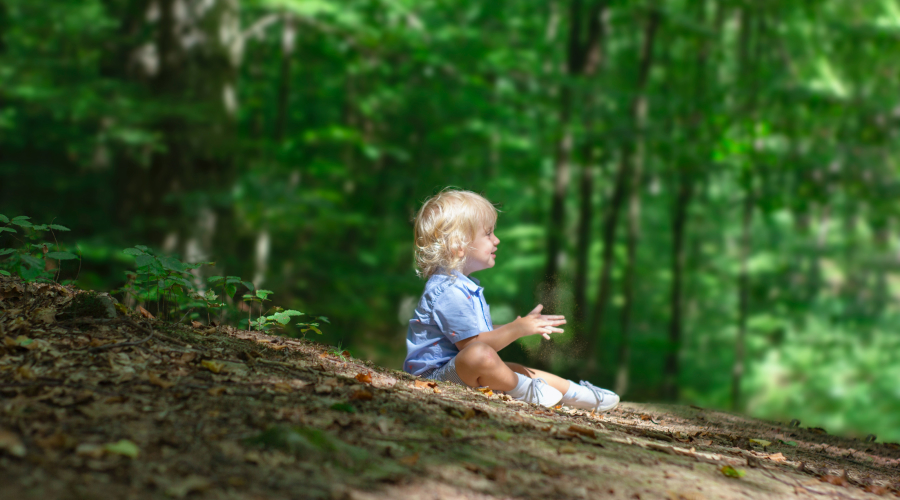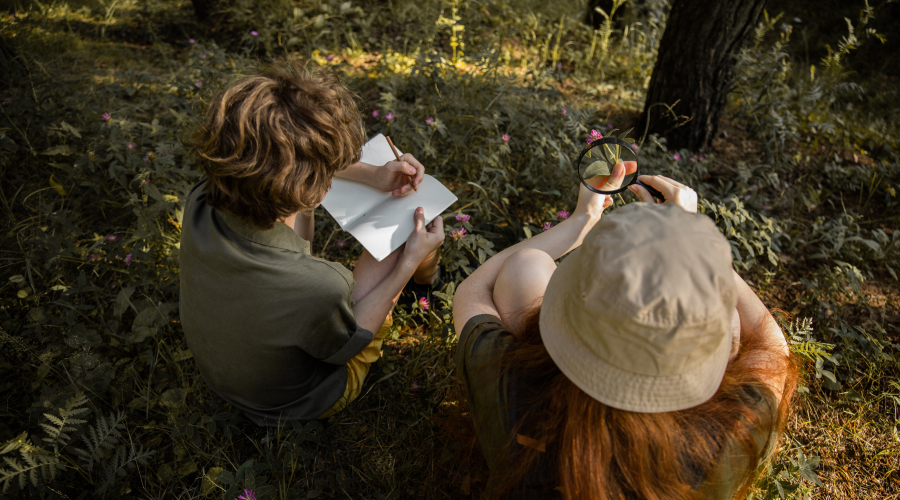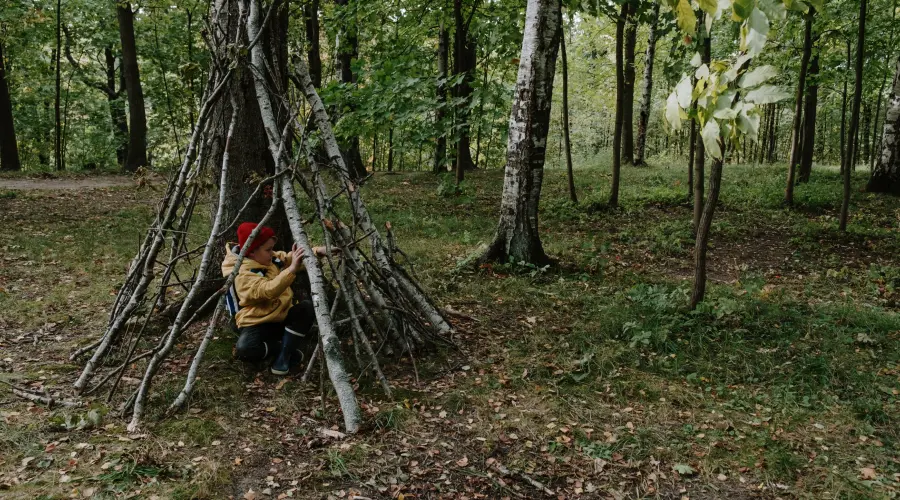Nursery Group
Cornwall
3 and 4-year-old funding
4
settings
650 on roll
children
With Famly since
March 2017
The big ideas
- Your ethos is the compass that guides all aspects of your provision, from resources to the environment, from pedagogy to care routines.
- Having a clear ethos unites your team and sets everyone on the same course, but leadership have to set the example and ‘live’ the ethos too.
- At a time when Early Years staff recruitment and retainment is challenging, living your ethos can ultimately be why your team choose to stay working with you.
Ten years ago, as a local authority education consultant, Mandy Richardson saw plenty of Early Years settings around Cornwall. And, although Mandy could offer support and advice, what she really wanted was to have a setting of her own.
So that’s exactly what she did.
Mandy initially bought two settings and set about changing them to match her vision of what an Early Years setting should look like; child-centred, with natural, outdoor learning. She called them ‘Naturally Learning’ to reflect this ethos.
But why does an ethos matter so much?
I sat down with managing director Mandy, as well as directors, Tom Richardson and Sarah Hood, and setting manager, Sally Woodford to find out.
Why have an ‘ethos’ in an Early Years setting?
Think of your ethos as the compass that sets the direction of your setting.
For example, it’s Mandy’s ethos of ‘naturally learning’ that informs how things work in the Naturally Learning settings, and sets them apart. She defines it in two ways:
- Naturally learning - meaning the importance of unhurried, child-led learning and development. As director Sarah Hood explains, “If the staff are right and the environment is right, learning will happen naturally. It doesn’t need to be prescriptive.”
- Naturally learning - meaning learning through a nature-focused outdoor curriculum, with sustainable materials and resources

The ‘why’ and the ‘what’
Fundamentally, your ethos is the ‘why’ for your setting that determines the ‘what’ (your practice, curriculum, pedagogy, environment etc).
And the ‘why’ and the ‘what’ have to work hand-in-hand. So at Naturally Learning, it wasn’t enough to just have natural materials, and get outside. Their curriculum, and entire philosophy toward early learning, had to be organic too.
As Sarah explains, “There's plenty of places that offer outdoor learning - which is great, we want as many children outdoors - but the activities can often still be prescriptive. 'We’re making this today, sit down and whittle a hedgehog’, is not open-ended. It’s not child-led.”
Naturally Learning’s Vision and Values
- Child-Focused - We hold the child at the centre of the decisions we make each day. We consider their holistic development, their developmental stage and their emotional well-being. We respect the child. We ask ourselves; is this right for the child? How do our decisions impact the child?
- Respectful Relationships - At Naturally Learning we expect our staff to be the best they can be. We are on a journey together to learn and grow, in knowledge and confidence. We are reflective; always open to questioning and developing our practice. We show respect in every interaction, with children, families, colleagues, and the wider community.
- Authentic - At Naturally Learning we must all believe wholeheartedly in our ethos and approach to children’s learning and development. What we provide for children and their families must be real and genuine.
- Sustainable - In today’s world we must display a genuine consideration for the environment. We will limit the use of single-use plastics. We will reduce, reuse and recycle wherever possible. We will share these values with the children and their families.

Auditing your environment
Using your ethos (or your ‘why’) as your compass means you can refer to it to ensure you’re not going off course.
For example, when considering whether to introduce new resources to your setting, you can audit how these fit within your ethos to help you make a decision.
“You can have a beautiful setting, and our settings are beautiful, but it can’t just look good,” explains Mandy, “You have to have an understanding of why the resources are there. What is that resource is going to do? It’s there not because someone has told us to go and buy it, but because it’s the right weight, the right feel, it will teach the children hand-eye coordination, or it will support core body control.”
If the resource just looks nice but doesn’t fit with your ethos, it’s a no-go. For example, Naturally Learning might evaluate whether a resource meets their third value, ‘Sustainability’.
But an ethos isn't just for the environment and resources, it’s for your team too.
Uniting your staff
Sharing your ethos with your staff means they can follow that proverbial ‘compass’ and ensures everyone’s going in the same direction.
But the same ethos doesn’t necessarily mean a prescriptive, top-down approach. For Naturally Learning, living their ethos means being flexible and open to new, better ideas.
“The managers are all people who we absolutely trust to lead on not only our message but that they believe in the same things we believe,” says Tom, “But if they don’t, they will say so to us. And if they come up with a better idea then we’ll go with their idea. It’s about strong beliefs, held loosely.”
This culture of being open to new ideas and improvement is implicit in Naturally Learning’s second value, ‘Respectful Relationships’ between everyone, at whatever level.
“It’s essential to have truthful conversations with each other, with colleagues, with management with parents, and with children,” says Mandy, “None of us knows everything.”
And if things don’t go to plan?
Use your ethos as a drawing board to go back to. Naturally Learning use the lens of ‘naturally learning’ to look at mistakes, asking themselves what they can learn from what went wrong.
“It’s not about looking for whose fault it is, it’s about how is it going to be fixed,” says Tom, “There’s no point apportioning blame, it’s about finding the resolution. Learning should always be at the centre of it all.”

Empathy for the Early Years
High standards are key for ensuring your ethos is truly ‘lived out’ in your settings. But for Naturally Learning, these expectations must be coupled with empathy. As well as the Senior Leadership Team getting out and doing the work in the settings, they place a real emphasis on mental health and well-being.
“Something Naturally learning really values is supporting the personal sides of our educators, says Sally. “It’s not just about qualifications, but we value life skills, passions, and experiences. Those are woven into our day-to-day practice and the opportunities that children have.”
And Mandy and the team don’t shy away from the realities of the Early Years sector.
During a recent staff meeting regarding mental health, money was raised as a factor in the team’s well-being. Tom agrees that from the 16-year-old apprentice to him as a director, they could all earn more at a supermarket.
But what keeps the team at Naturally Learning and not posting their CV to the supermarket is - you’ve guessed it - the ethos.
“We talked about the positives and why we come to work,” says Tom and, like Naturally Learning’s ethos, the children really are at the core of that. “We said that there really is no other workplace where you get to take children to the beach or the forest, sometimes for the first time. No other workplace do you walk and somebody comes running at you with open arms, to give you a cuddle. To watch a baby’s first steps… all these magical, ‘wow’ moments. You don’t get that anywhere else.”
How can you ‘live’ your ethos
For Mandy, and the rest of the leadership team, their values and ethos have to be lived through every aspect of the Naturally Learning settings - that’s actually one of their values too; ‘Authentic’.
“For example, our first value is ‘The child is at the centre’,” explains Mandy, “So we always have to ask ourselves, even as a head office team, ‘Are the decisions I’m making for the business right for the child?’ Because if they’re not, we’re failing the children.”

Being present in the settings
With a larger group, how can you be sure that your ethos is present and alive in all your settings and not just in your staff handbook? Naturally Learning run training on their ethos once a term, but according to Mandy and the Naturally Learning Senior Leadership Team, you really have to go into the settings and live the ethos too.Every single week, one of the Senior Leadership Team visits one of the settings to check in, help out, and offer support. Tom affectionately calls this the ‘Senior Leadership Shuffle’. The senior leaders then all meet together to share feedback about what they’ve seen in the settings, discuss the outcomes and what interventions might be needed.

“None of us are scared to be an extra member of staff. We will go in and do the job. I will go into numbers and ask the team what they want me to do. I pride myself on being the best cleaner we have in the business. I can’t ask staff to do things that I’m not prepared to do myself. I really do believe in that.”
Mandy Richardson, Managing Director, Naturally Learning
“We do have very high expectations and we do set our standards high,” says Sarah, “But we offer the building blocks as to how people can achieve them. We demonstrate that we can do it.”
Top tips from Alphabet House
Get top tips from a setting just like yours. Hear from Alphabet House on why and how they use Famly - and why they’ve never looked back.
Read their story










